Honoring 20 Years of the National Congress of American Indians (NCAI) Violence Against Women Task Force Leadership
Twenty years ago, in 2003, nonprofit Tribal domestic violence and sexual assault coalitions, Clan Star, Inc. and the National Congress of American Indians (NCAI) partnered to breathe life into the NCAI Violence Against Women (VAW) Task Force fulfilling NCAI’s resolution #STP-00-081 from the 2000 NCAI Annual Session in Minnesota which stated:
WHEREAS, all Indigenous Native Cultures have a belief that respects and honors Native women as life and care givers of nations; and
WHEREAS, the interaction between immigrants and Indigenous cultures has caused a significant breakdown of this value of respect and honor of Native women, resulting in a high rate of domestic violence directed toward Native women; and
WHEREAS, it is necessary for NCAI as the leadership for tribal governments to be pro-active in defense of Native women to curtail and prevent violence against Native women; and
WHEREAS, failure to recognize and acknowledge domestic violence as having a major impact on Native communities, families, women and children, and diminishes, not only Native women but, also diminishes the heart and spirit of Native Nations as sovereign; and
WHEREAS, the future of indigenous nations rests in the secure status of women, to live in a environment free of violence.
Task Force Co-Chairs have led our grassroots movement, helping the Task Force fulfill its purpose to monitor national legal and policy issues and hold the United States accountable for exercising the federal trust responsibility. This responsibility has been exercised through the annual government-to-government Violence Against Women Act (VAWA) consultations since 2006, Senate and House hearings and Hill briefings, and ongoing dialogue between federal and Tribal policymakers about how to increase the safety of Native women.
“When our Tribal governments and leaders work with survivors and advocates, we can make a difference in the lives of our women, families, and Tribal Nations, as we have seen over the last 20+ years. While we have so much more work to do, we recognize the importance of thanking and honoring our Co-Chairs for their strong-hearted leadership over the last 20 years and look forward to the changes we will secure with the next 20 years of NCAI’s VAW Task Force leadership,” said Carmen O’Leary, (Cheyenne River Sioux Tribe), Chairwoman, NIWRC Board of Directors.
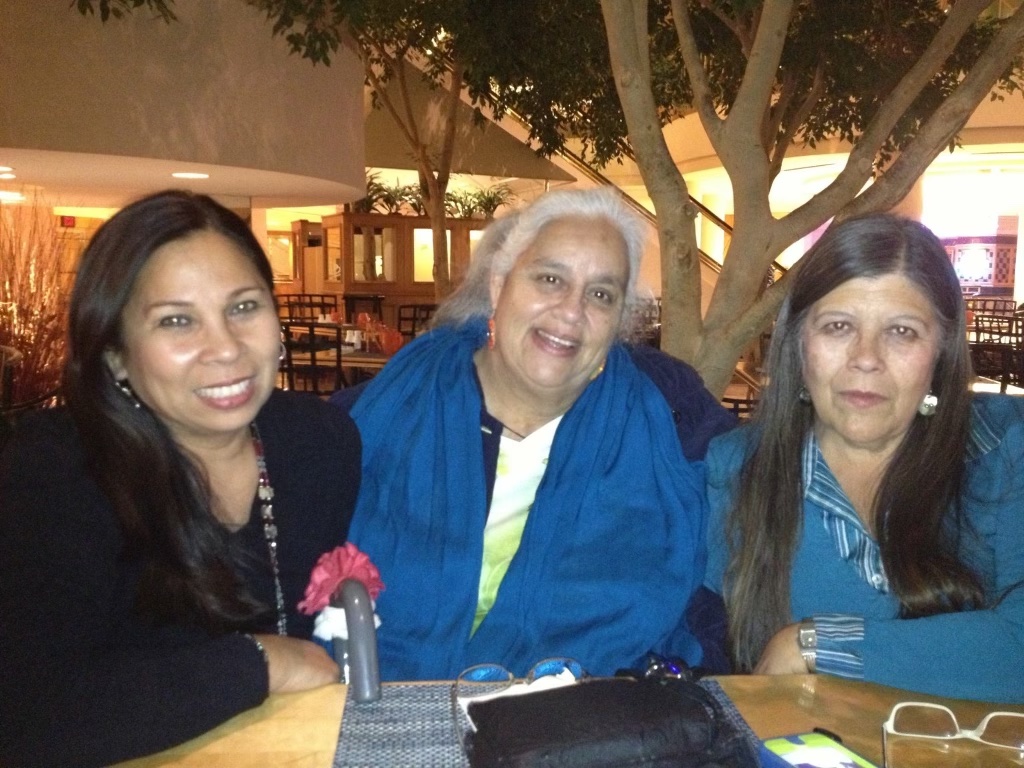
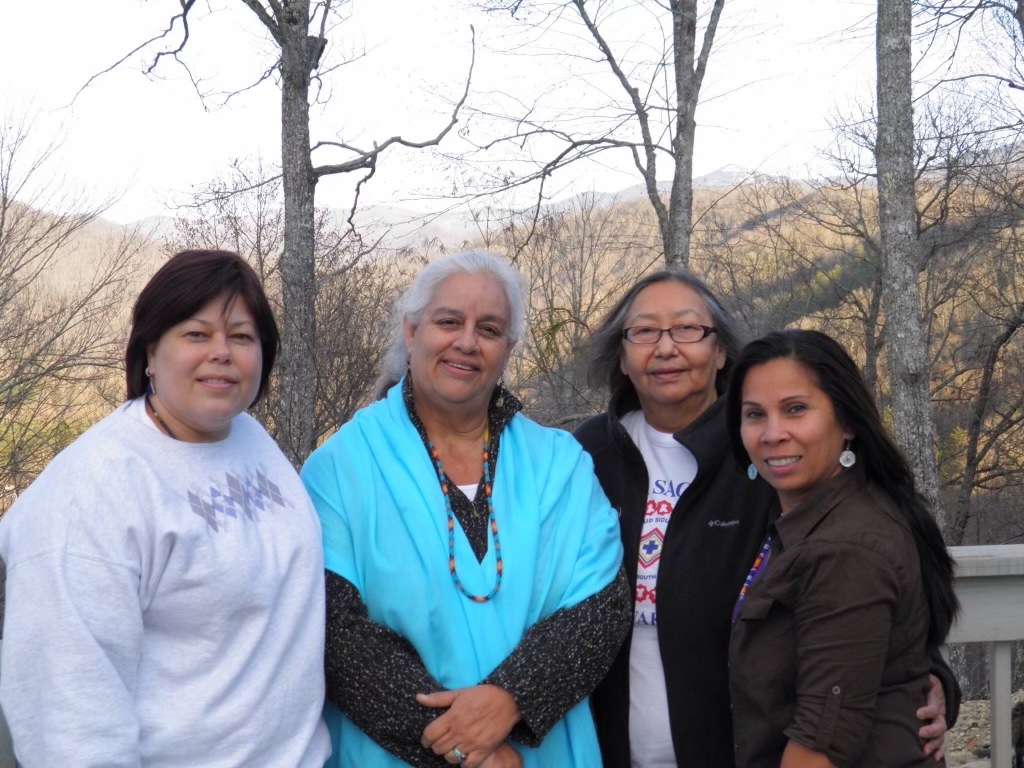
Bear, and Jacqueline Agtuca. / Photo courtesy of Juana Majel Dixon.
“Our grassroots organizing with the NCAI VAW Task Force has helped to nourish the growth of our movement as reflected in Native organizations like NIWRC, the Alaska Native Women’s Resource Center, StrongHearts Native Helpline, Alliance of Tribal Coalitions to End Violence, and the Pouhana O Nā Wāhine, and our partnerships with non-Native allied organizations. We look forward to strengthening the capacities of and partnerships with Tribal Nations and Native Hawaiian communities to remove the systemic barriers in federal laws and policies disproportionately impacting Native women,” said Lucy Simpson, (Diné), Executive Director of NIWRC.
Join us for Task Force meetings preceding each NCAI session—Executive (February), Midyear (June), and Annual (October/November) and be a part of restoring sovereignty to increase Native women’s safety.
Past VAW Task Force Co-Chairs
Karen Artichoker is a citizen of the Pine Ridge Indian Reservation and has been involved in the movement to end violence against Native women for over 30 years when she co-coordinated the first “Indian Nations: Justice for Victims of Crime” conference. At that time, she was an employee and later a consultant for the South Dakota Coalition Against Domestic Violence and Sexual Assault. In that capacity, she served on the National Coalition Against Domestic Violence (NCADV) board in support of her long-time friend and mentor, Tillie Black Bear, the first native woman Chair of the NCADV Board of Directors. Karen provided a Native voice in the drafting and passage of the VAWA. She testified twice in front of the Senate Committee on Indian Affairs and created many relationships that led national organizations to ally with Native women and organizations. These relationships, along with the hard work of many other Native women, have moved Native women out of “invisible” status.
Karen is a founding mother of Cangleska, Inc., a domestic violence prevention and intervention program, and Sacred Circle, a National Resource Center to End Violence Against Native Women. Sacred Circle became the fifth resource center in the national technical assistance and training network supported by the Family Violence Prevention and Services Act (FVPSA). Sacred Circle provided the first opportunity to create Native-specific information and materials, including the Restoration Magazine, specific to violence against Native women. It solidified the Native voice on the national level. Karen was one of two founding co-chairs of the NCAI VAW Task Force. In 2011, Sacred Circle handed over the reins to the National Indigenous Women’s Resource Center (NIWRC) to continue serving as the National Indian Resource Center on Domestic Violence.
Karen lives in Rapid City, SD. She is the mother of four daughters and numerous grandchildren and great-grandchildren. She maintains a vision of a world where women are valued and respected as sacred.
Terri Henry looks forward daily to the opportunity to develop programming and activities and lead the evolution of the Tribal Employment Rights Office (TERO). She is especially proud of the accomplishments of the Mother Town Healing Program participants as she observes their growth in recovering from substance abuse into productive
citizens.
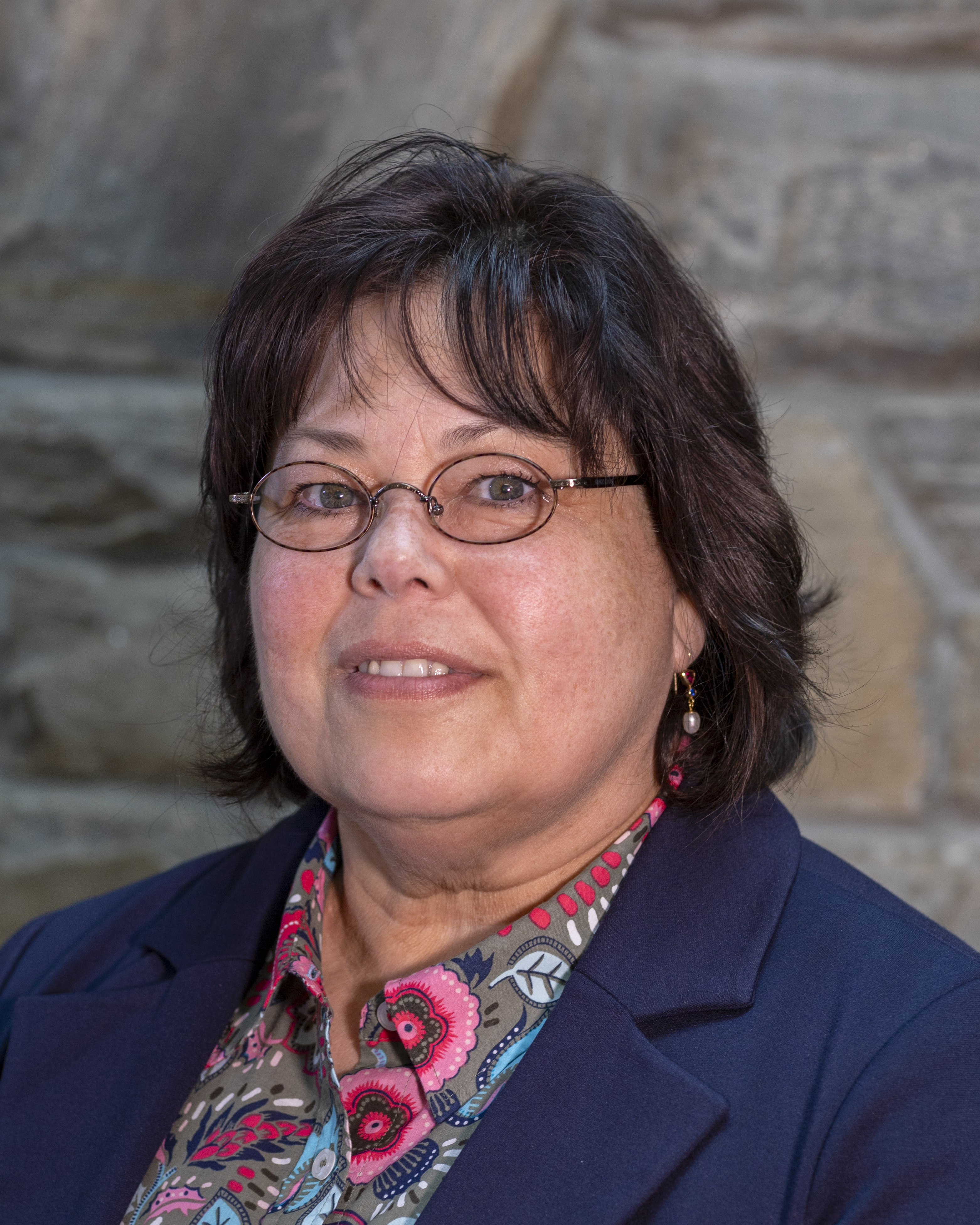
Photo courtesy of Eastern Band of Cherokee Indians.
Ms. Henry was honored to serve as the first Secretary of State for the Eastern Band of Cherokee Indians (EBCI) in 2016. Terri was elected to six consecutive years on the EBCI Tribal Council (2009-2015), the last two years of which she served as the first Chairwoman and had the distinction of chairing the Tri-Council of the Cherokee Nations at the historic capital in Tennessee.
Ms. Henry was appointed as an Independent Expert for North America to the United Nations Permanent Forum on Indigenous Issues from 2017-2019. Terri is well known for championing Tribal sovereignty issues nationally and providing leadership on the passage of laws strengthening Tribal sovereignty and self-governance. Over the years, she has played a key role in strategizing the grassroots movement addressing violence against American Indian and Alaska Native (AI/AN) women and supporting the passage of two seminal federal laws: The reauthorization of the Violence Against Women Act (VAWA) of 2013, including its previous iterations, and the Tribal Law and Order Act of 2010. To achieve these goals, Ms. Henry founded and co-chaired the National Congress of American Indians (NCAI) VAW Task Force. She is a founding member and first Board Chairperson of the National Indigenous Women’s Resource Center (NIWRC) and currently serves as the Board Chair of the Indian Law Resource Center (ILRC).
She has been privileged for almost 25 years to work with many Tribal governments, to travel throughout Indian country and abroad, study and work at the United Nations, and advocate for the human rights of Indigenous peoples and in support of the Declaration on the Rights of Indigenous Peoples and other international instruments. In 2008, Ms. Henry was one of the coauthors of an amicus brief in support of Jessica Gonzales concerning the failed response of the police. This was the first brief on violence against Indigenous women in the United States.
Ms. Henry’s educational background, small business, professional experience, and Cherokee life experience have given her a unique perspective from which to analyze legal and Tribal governmental issues.
Lenora “Lynn” Hootch is Yupik and an enrolled member of the Native Village of Emmonak, located in the Yukon Delta Region of southwestern Alaska. She was born, raised, and has lived in her Village all her life. She is an active member of her community. Lynn holds elected positions, including Emmonak Tribal Council, Advisory School Board member, volunteer church minister for local Parish Church, and a founding Board member of the Alaska Native Women’s Resource Center (AKNWRC). She also served on the NIWRC Board from 2011-2020 and co-chaired the NCAI VAW Task Force. Lynn is a founder of the Emmonak Women’s Shelter, a non-profit, grassroots organization founded in 1979 to increase safety for women and children who are victims of domestic violence, sexual assault, and other forms of abuse and to provide emergency shelter and assistance for these women and children.
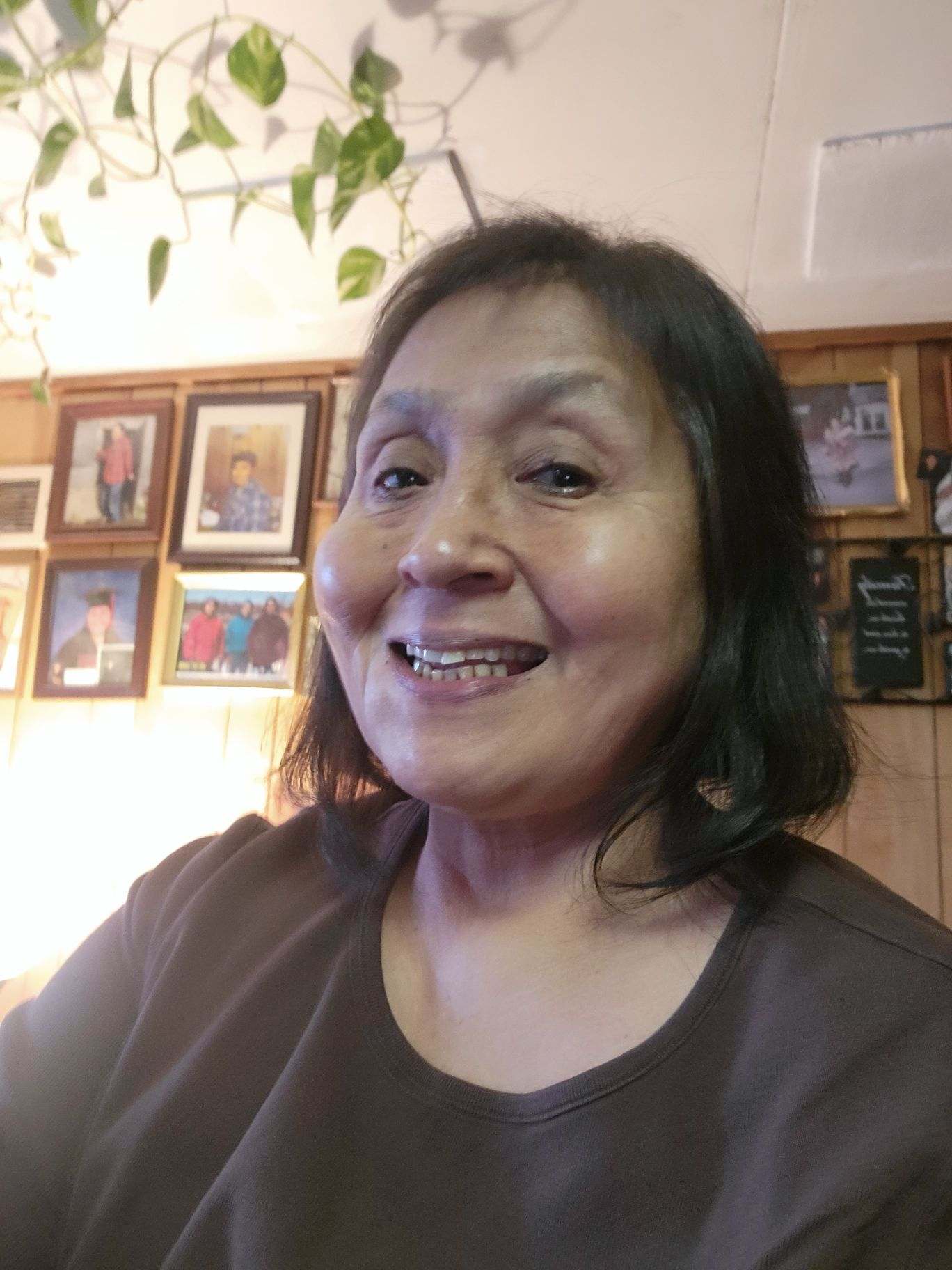
Photo courtesy of Lenora Hootch.
Lynn currently serves as the Director for the Yupik Women’s Coalition, a regional Tribal coalition that raises public awareness of domestic violence, sexual assault, stalking and dating violence, enhances the response to violence against Native women at the local, state, and national levels, and provides technical assistance to other Tribes in Alaska to improve access to essential services for Native women victimized by domestic violence and sexual assault. Lynn is married and the mother of five beautiful children(three boys and two girls—and a grandmother to 18 grandchildren, who bring life, joy, happiness, and love to all.
Michelle Demmert, Tlingit, Eagle, Ḵaax̱ʼoos.hittaan (Man’s Foot) clan is an assistant professor at the University of Alaska in the Department of Tribal Governance. She is a past delegate and former Chief Justice for the Central Council of Tlingit and Haida Indian Tribes of Alaska. As an attorney for over 30 years, she has served many roles in Tribal governments and Tribal agencies, including as co-chair of the NCAI VAW Task Force. Professor Demmert served as the Law and Policy Director for the AKNWRC, providing education and technical assistance and assisting with setting the policy and priorities for Alaska Tribes in domestic violence and sexual assault. Previously, she was in the General Counsel’s office at the Tulalip Tribes for nearly 10 years and held various positions with the Northwest Intertribal Court System, including Administrator and Chief Judge. Professor Demmert is a graduate of the University of Washington with a law degree and a BA in Psychology. She actively engaged in Alaska commercial fishing for salmon, halibut, and herring fisheries before she practiced law.
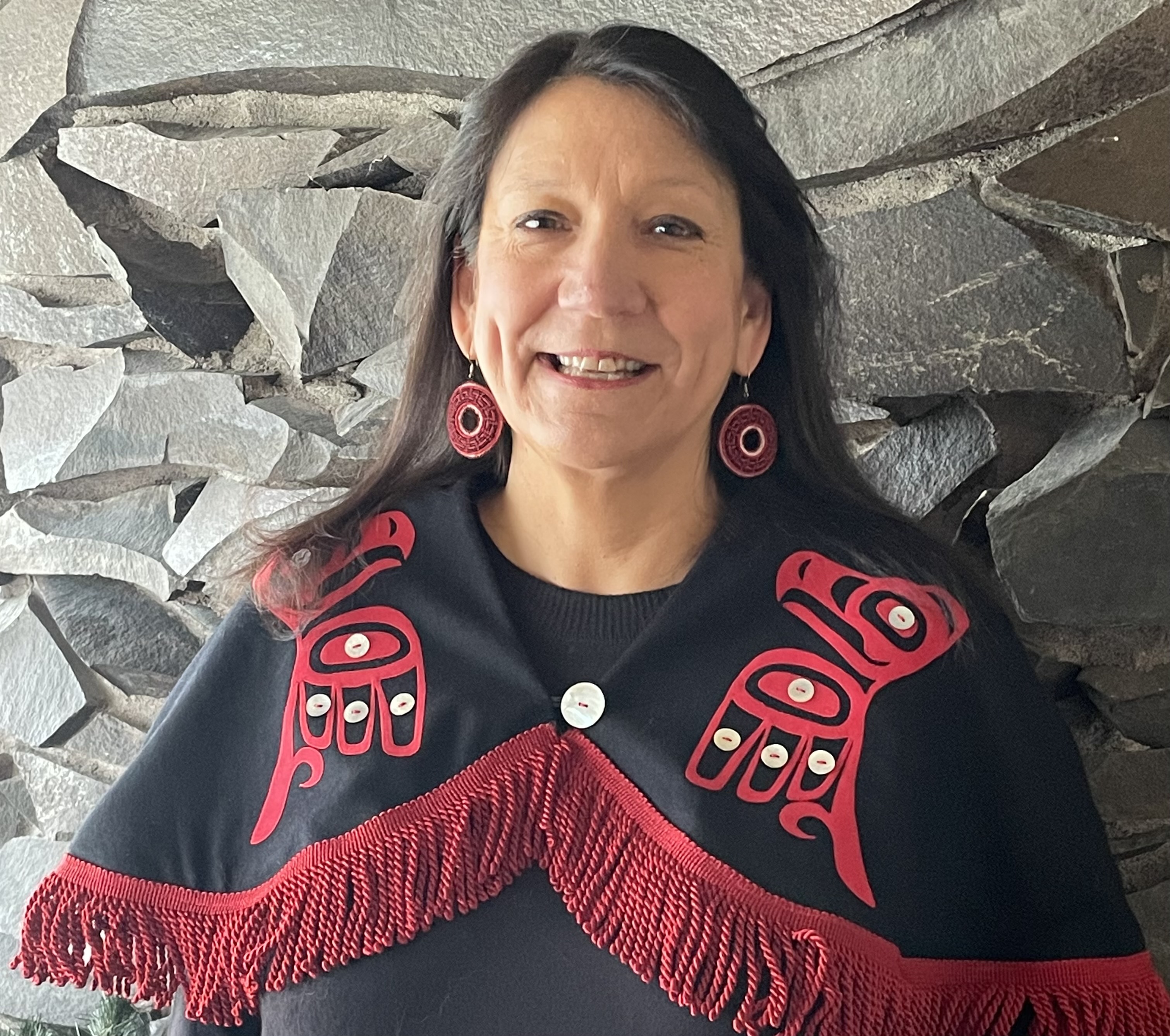
Photo courtesy of Michelle Demmert.
Current Task Force Co-Chairs
Juana Majel Dixon, Ph.D., is a citizen of the Pauma-Yuima Band of Luiseño Indians and has served on the Tribe’s legislative council for 40 years. Juana has been a member of NCAI for nearly six decades and spearheaded the formation of NCAI’s VAW Task Force in 2003 as co-chair for the past 20 years, dedicating endless hours to the re-authorization of VAWA in 2005 and ensuring the passage of VAWA and the Tribal Law and Order Act in 2013. She currently chairs the U.S. Department of Justice Tribal Actions Leadership Council, advising the Attorney General on public safety, criminal justice, and other critical issues facing AI/AN communities. Juana is co-chair of the Substance Abuse and Mental Health Services Administration Tribal Technical Advisory Committee and Southern California delegate with the Tribal Interior Budget Council.
She has championed the UN World Council Against Racism and the UN Declaration on the Rights of Indigenous Peoples. Juana also served as the UN North American Indigenous Representative from 1998-2008. Juana holds a joint doctorate in U.S. policy and education and master degrees in behavioral science and psychology. She has taught federal Indian law and U.S. policy for 25 years at Palomar College. She is a visiting professor at San Diego State University, Claremont Graduate University, and Cal State San Marcos. Throughout her career as an advocate, educator, and traditional Native healer, she has traveled the world representing the unique perspectives of Indigenous peoples, raising awareness about Native sovereignty, trafficking, the stolen sisters movement, Tribal justice systems, racism, spirituality, healing, and education.
Shannon Holsey serves as president of the Stockbridge-Munsee Band of Mohican Indians. Holsey has served four terms as President, following eight years as a member of the Tribal Council. Holsey grew up on the Stockbridge-Munsee Reservation in Bowler, WI, and has committed the Tribe to serving as good stewards of its economic, environmental, cultural, and intellectual resources. Holsey received her Bachelor of Business Administration manga cum laude and master’s degree Strategic Leadership and Communication from Seton Hall University and master’s degree Human Resources and Employment Relations from Penn State University with distinction.

Photo courtesy of Shannon Holsey.
Holsey has also served her sixth term as president of the Great Lakes Inter-Tribal Council, representing 11-member Tribes with a land base of about 1 million acres spanning 45 counties. She is appointed to the Wisconsin State Legislature’s Special Committee on State-Tribal Relations. She serves in the following capacities: NCAI Treasurer, NCAI Area Vice President for the Midwest region, MAST Secretary, INMED Advisory Council, CMA Tribal Technical Advisory Group, NCAI Subcommittee member of land management, Co-chair of NCAI VAW Task Force, Wisconsin’s MMIW Task Force, Governor Appointed Student Debt Relief Task Force, National Council on Aging committee member, Region 5 EPA RTOC member, and 2020 presidential elector for the state of Wisconsin.
Holsey’s philosophy on leadership recognizes that Native Americans are growing economies, preparing students to succeed, delivering high-quality health care, protecting the environment, upholding Tribal sovereignty, and solving the unique challenges facing Tribal communities.





